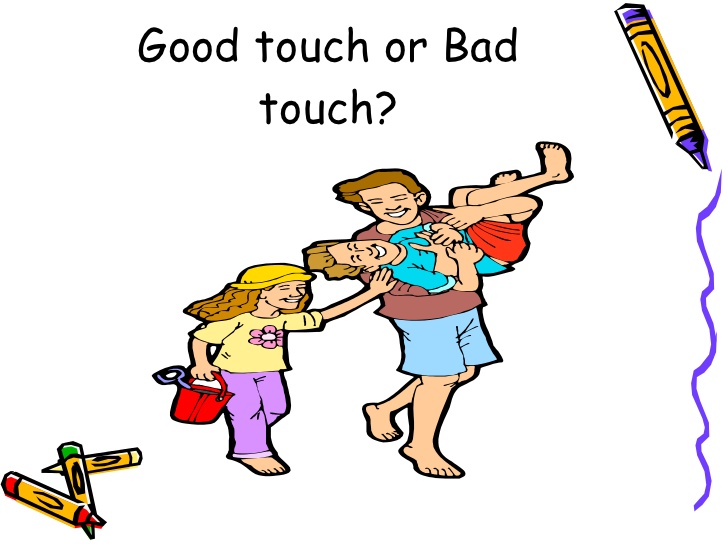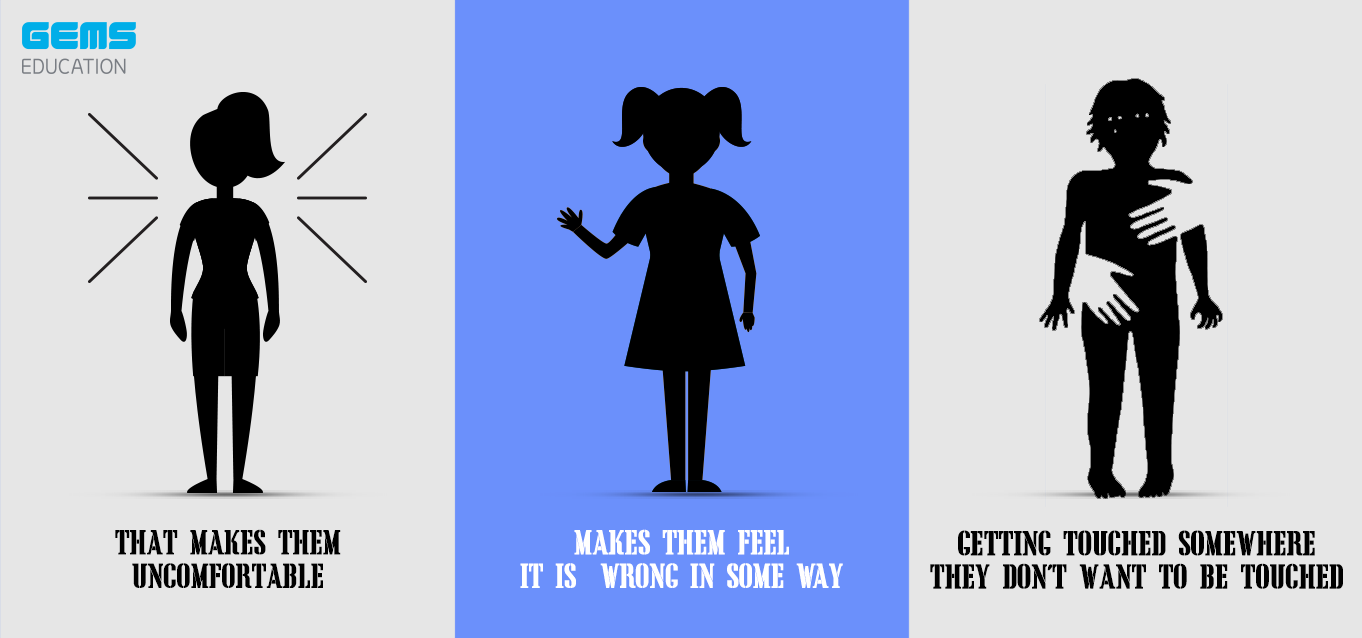Good Touch Bad Touch
As parents, why do you need to talk to children about sexual abuse?
By: Dr. Dipti B. @Dipti_b, INN, Chennai;
 Child sexual abuse is very frightening and unimaginable, but the hard truth is that it exists. We must accept reality and raise awareness rather than being in constant denial.
Child sexual abuse is very frightening and unimaginable, but the hard truth is that it exists. We must accept reality and raise awareness rather than being in constant denial.
You are the most important adults in your child’s world, whom they trust and look up to. You care for them and nothing is more important to you than their well-being and safety, but you can’t always be around physically to protect them. Hence, it is essential to equip them with the necessary information that will help them take care of themselves.
Talk about it before it happens
Talking to your childrenwill be very challenging but the possible consequences of not talking are even worse as they might actually be abused but wouldn’t know where to turn for help, or might turn to the wrong sources.
What’s the right age to start?
There’s no perfect age to start, but you can begin at 3 years of age approximately. The conversation must beage-appropriate.
Be comfortable and well-informed first
Come out of your own inhibitions by discussing sex, sexuality and sexual abuse with your friends and relatives.
Keep it natural, light and easy
You don’t need separate talk sessions. Make it a part of your everyday life and activities. For example, do not change channels on TV if there are advertisements about condom/sanitary napkin running. It will make them think that you aren’t open to discussion about such things. Also, make use of the moments when they are being naturally inquisitive: “Where do babies come from?” or “What is sex?”. Conversations should be serious, yet unemotional (light-hearted), so that they feel comfortable talking and asking questions.
Answer their Questions?
Dignify children by answering their questions, be honest and open, otherwise they might look for other inappropriate ways to satisfy their curiosity. For example, they might ask you- ‘Why’re you telling me this? – Because it is important to keep you safe”.

Naming the Body Parts
Teach children to name their body parts including private parts. Explain to them the difference between both the sexes. Avoid using code words. Knowing the right words makes it easy for the children to point to the right body part if they have been abused and also talking about sex and sexuality easier as they grow up.
Set general and personal safety rules
Begin with general rules like – ‘Look both ways before crossing the road’, ‘Don’t play with matchsticks’ and then proceed to personal safety rules like- ‘It is never okay if someone touches your private parts except to keep you clean and healthy, or when the doctor is checking you, but even that should be done in our presence, or any touch that makes you uncomfortable’.
Good Touch
Any touch which feels good, pleasant and comfortable is a good touch. It is a way to show love, care and help. For example, mummy’s kiss, or papa’s hug.
Bad Touch
It is any touch that feels uncomfortable, weird or painful and you want it to stop. Eg, beating, kicking, hurting, forceful hug/kiss/touch.
Teach to Shout & Say a ‘No’
Teach them to say a ‘No’ if someone tries to break this touching rule, in a loud, firm and assertive manner.
What If…?
Play the ‘What if…?’ game with your child. “What if we get separated in the market and you aren’t able to find me, then what will you do?” “What if someone is trying to touch your private body parts?”
Teach children that it isn’t ok
-to sit on anyone’s lap,
-to land in a situation where they’re alone with someone.
-dress/undress in front of others, or watch anyone do so. Teach them to excuse themselves whenever they want to change. Adults too must not change in front of a child older than 3 years.
-if anyone takes pictures of them without their clothes on.
-if someone undresses them.
-if someone sees their private parts.
-to see someone’s private parts.
-if someone is forcefully trying to show them dirty pictures/videos or actual acts.
-if someone is telling them sexual stories that they don’t want to hear.
Your Body is your Own
Even if it is something like holding hands or hugging, children should know that they have a right to refuse if they don’t like it.Help them trust their own feelings.

Never keep Secrets
Children find it very hard to talk about or disclose sexual abuse. Ask them never to keep secrets about a touching problem,to tell someone they trust and to keep on telling until they get the help they deserve.
What if other kids touch their prohibited parts?
Tell your child that accidental touch during play is okay, but if someone touches them repeatedly, they should be informed.
Polite or Safe?
There is a difference between being polite and being polite to strangers or familiar people giving you odd vibes. Children gain confidence when they’re given the permission to be rude to such people. If kids are rude to someone, encourage them to share why they did it, but don’t scold them or stop them abruptly.
Be your child’s best friend
Let them know how important they are for you by being available when they need to talk to you. Spend quality time with them, listen to them and assure them that they can share anything with you.
Handling inappropriate language/behaviour
If children exhibit a sexual behavior or use sexual language which is inappropriate for their age, ask them calmly where they learnt it from, instead of panicking or scolding them.
Use Books
Books about good and bad touch are available nowadays, which are very illustrative. Read stories to your kids about children who have been in difficult situations and how they managed to get over them. This will make them realize that that they aren’t alone when it comes to facing problems and it will help them have a positive outlook, build their confidence and self-protection skills.
Repeat
Last but not the least, repeat the points after regular intervals. This works similar to booster doses of vaccines and helps in reinforcement of the safety rules.




